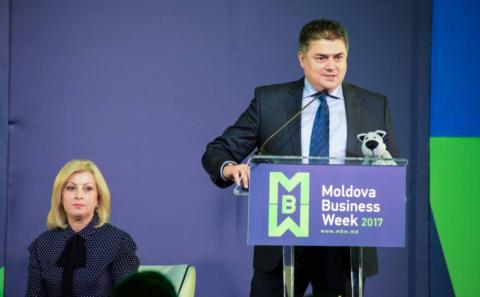
An SME conference was recently held in Chisinau, bringing together some 350 entrepreneurs and representatives of national and local authorities and business support organisations. This year, the 10th International Conference of SMEs was titled ‘Intelligent Specialisation, the Engine of Economic Growth of the Regions of the Republic of Moldova’.
The objectives of the conference included presenting the socio-economic potential of regions and identifying support instruments for reorienting industrial structures to emerging markets and international markets, and the opportunities and challenges arising from the implementation of commitments resulting from Moldova’s European path.
The event was hosted by the Organisation for the Development of the Small and Medium Enterprises Sector (ODIMM) in partnership with the Ministry of Economy and Infrastructure.
According to Iulia Iabanji, ODIMM General Director, it is imperative that the Republic of Moldova adopt a new method of entrepreneurial development, known as Intelligent Specialisation. "In this initiative, SMEs remain a strategic goal because of their potential to generate income and jobs, simultaneously promote social integration and cultural diversity, ensure human development, maintain and capitalize on talents," she said.
Regulatory framework to support private enterprise
In turn, Deputy Prime Minister Octavian Calmac, Minister of Economy and Infrastructure, said the government aimed to create and develop a regulatory framework that is most favourable for entrepreneurs. This is because SMEs now account for 98% of the total number of enterprises, 60% of the total labour force and contribute about 30% of GDP of the country. In this respect, an important instrument for reform is the Association Agreement with the EU and the Deep and Comprehensive Free Trade Area.
Since 2007, ODIMM has benefited from EU support for numerous projects for entrepreneurs, among the most visible being PARE 1 + 1, PNAET, Business Incubators or, more recently, Business Academy for Women. "We thank the development partners. With their support, we are developing entrepreneurship support programmes - PARE 1 + 1, PNAET, Women in Business," said Octavian Calmac.
According to Ambassador Peter Michalko, the Head of the EU Delegation in Chisinau, the number of entrepreneurs present at the event is a clear indicator that the country not only needs but also has a great potential to implement reforms in the economy so that the level of development grows. According to the ambassador, the EU will continue to support the Republic of Moldova in the implementation of the Free Trade Zone, which will allow businesses to have access to the largest European market.
The Moldovan government is committed to implement reforms to support the development of SMEs. EU4Business programmes complement these efforts by improving access to finance, helping SMEs move into foreign markets and providing training to build up business skills. Specific technical help is available to Moldovan SMEs to make sure they can make the most of the country’s free trade agreement with the EU.
